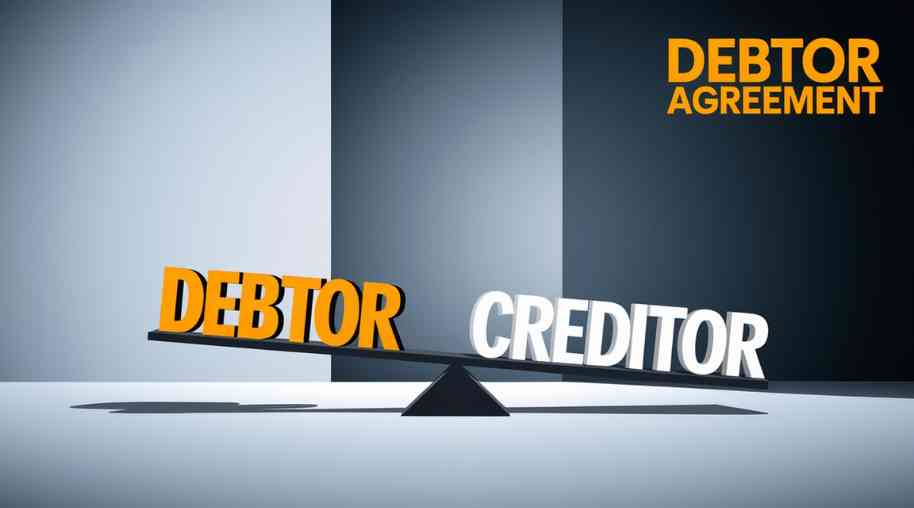DCA Full Form - Debtor Creditor Agreement
by Shashi Gaherwar
0 2255
Debtor-Creditor Agreement: Structuring Financial Obligations
A Debtor-Creditor Agreement is a legally binding contract that outlines the terms of a financial arrangement between a debtor (borrower) and a creditor (lender). These agreements define the obligations, repayment terms, interest rates, and legal recourse in case of default. Whether in personal lending, business financing, or large-scale corporate transactions, such agreements play a critical role in managing debt and ensuring financial accountability.

This article explores the fundamental aspects of debtor-creditor agreements, their types, key elements, legal considerations, and best practices for both parties involved in financial transactions.
What is a Debtor-Creditor Agreement?
A Debtor-Creditor Agreement is a contract that establishes a financial obligation between a debtor (who owes money) and a creditor (who provides the funds or credit). It ensures clarity on repayment schedules, interest rates, collateral (if applicable), and consequences in case of non-payment. These agreements are commonly used in:
- Personal Loans: E.g., mortgages, auto loans, student loans.
- Business Loans: E.g., small business financing, commercial loans.
- Credit Card Agreements: Contracts governing credit card usage and repayment.
- Debt Restructuring and Settlements: Agreements to settle debts under modified terms.
Types of Debtor-Creditor Agreements
Debtor-creditor agreements vary based on the nature of the debt and security provided:
- Secured Debt Agreements: The debtor provides collateral (e.g., property, vehicle, or assets) to back the loan. If the debtor defaults, the creditor can seize the collateral. Examples: Mortgage loans, car loans, asset-backed financing.
- Unsecured Debt Agreements: No collateral is required, relying on the debtor’s creditworthiness. These carry higher interest rates due to increased risk. Examples: Personal loans, credit cards, medical bills.
- Debt Settlement Agreements: A negotiated agreement to settle a debt for a reduced amount, often used in financial hardship cases. Example: A credit card company accepting 50% of the outstanding balance as full payment.
- Revolving Credit Agreements: Allow continuous borrowing up to a credit limit with periodic repayments. Examples: Credit cards, home equity lines of credit (HELOCs).
- Installment Loan Agreements: Require fixed payments over a specified period until the loan is repaid. Examples: Personal installment loans, student loans, business equipment financing.
Key Elements of a Debtor-Creditor Agreement
A well-structured debtor-creditor agreement should include the following components:
- Identification of Parties: Names and contact details of the debtor and creditor, including business details (if applicable).
- Loan Amount and Interest Rate: The principal amount borrowed, applicable interest rate (fixed or variable), and any late payment penalties.
- Repayment Terms: Payment schedule (e.g., monthly, quarterly, lump sum), payment methods (bank transfer, check, online payments), and duration of the loan or credit facility.
- Collateral (If Any): Description of pledged assets and terms under which the creditor can seize the asset in case of default.
- Default and Remedies: Conditions constituting default (missed payments, bankruptcy, insolvency) and legal remedies available to the creditor (repossession, legal action, collection agencies).
- Governing Law: Specifies the jurisdiction and laws governing the agreement.
- Signatures of Both Parties: The contract must be signed by both debtor and creditor to be legally enforceable.
Legal Considerations in Debtor-Creditor Agreements
Debtor-creditor agreements must adhere to legal standards to ensure enforceability and fairness:
- Compliance with Lending Laws: Agreements must follow local regulations, such as the Truth in Lending Act (TILA) in the U.S. or the Consumer Credit Act in the UK, with clear disclosures on interest rates, fees, and penalties.
- Fair Debt Collection Practices: Creditors must comply with laws like the Fair Debt Collection Practices Act (FDCPA) to prevent harassment or unfair collection tactics.
- Bankruptcy Protections: If a debtor declares bankruptcy, repayment terms may change, with secured creditors often having priority over unsecured creditors in bankruptcy proceedings.
- Contract Enforceability: The agreement must be legally valid, signed, and compliant with financial laws to be enforceable.
Best Practices for Debtors and Creditors
To ensure a fair and successful financial arrangement, both parties should follow these best practices:
- For Debtors (Borrowers):
- Understand Loan Terms: Read and clarify repayment schedules, interest rates, and penalties before signing.
- Make Timely Payments: Avoid late payments to protect credit scores and prevent legal actions.
- Communicate with Creditors: Negotiate repayment terms if facing financial hardship.
- Avoid Over-Borrowing: Ensure debt obligations align with financial capacity.
- For Creditors (Lenders):
- Assess Borrower Creditworthiness: Conduct background and financial checks before extending credit.
- Secure Collateral Where Necessary: Reduces risk, especially for large loans.
- Document Everything: Maintain detailed records of loan agreements, payments, and communications.
- Use Legal Recourse Wisely: Pursue fair debt collection practices to recover unpaid debts.
A Debtor-Creditor Agreement serves as a foundation for financial transactions by defining rights and obligations clearly. Whether it’s an individual loan, a business financing agreement, or a debt settlement plan, both debtors and creditors must understand the contract’s terms to ensure fair dealings and compliance with legal regulations. By following best practices and maintaining clear communication, both parties can foster trust and accountability in their financial arrangements.
Further Learning Resources
If you’re passionate about building a successful blogging website, check out this helpful guide at Coding Tag – How to Start a Successful Blog. It offers practical steps and expert tips to kickstart your blogging journey!
For dedicated UPSC exam preparation, we highly recommend visiting www.iasmania.com. It offers well-structured resources, current affairs, and subject-wise notes tailored specifically for aspirants. Start your journey today!

Share:









Comments
Waiting for your comments